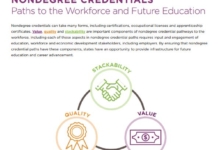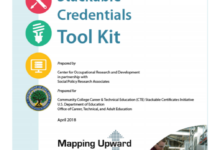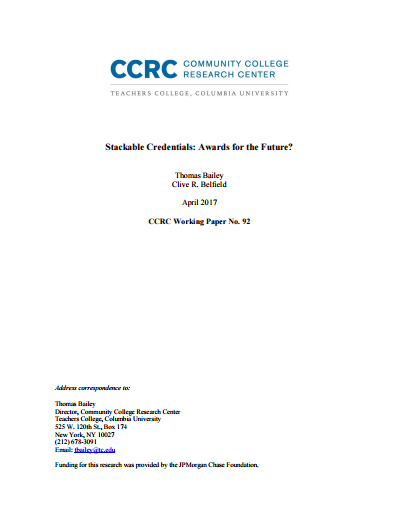This research study from the Community College Research Center examines stackable credentials — defined here as sequential postsecondary awards that allow individuals to progress on a career path — as a solution for maximizing workforce readiness and providing college students multiple entry and exit points along the postsecondary pathway. The authors use national, survey and college-system-level datasets and estimate that between 3 and 5 percent of the college-educated population have stackable credentials. To do this analysis, they classify three types of stackable credentials:
- Progression stacks: start with certificates and lead to a subsequent associate or bachelor’s degree
- Supplemental stacks: involve certificates earned after degrees
- Independent stacks: involve multiple certificates in the absence of a degree
Additionally, the report analyzes demographics of credential stackers and finds that they are more likely to be women, less likely to be minority students, and more likely to come from families with lower parental education and lower family income.
With growing interest in stackable credentials as a mechanism for guiding progression toward an associate or bachelor’s degree, this resource equips readers with an understanding of how U.S. students are obtaining stackable credentials.







